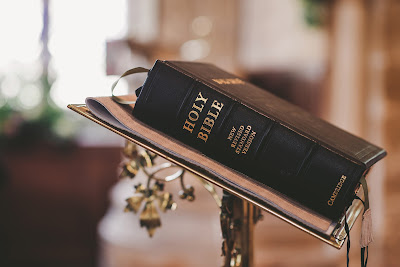Having used the contrast between hard and soft magic in the paperback edition, I've kept exploring this idea and pondering its application to different questions of faith. So, here's a series of some experimental theology, exploring how the notion of magical systems might apply to Christian theology.
To start, what do we mean by hard and soft magical systems?
As I acknowledge in the paperback edition of Hunting Magic Eels, my son Brenden introduced me to this idea. Brenden is a huge fantasy fan, and loves the work of the fantasy novelist Brandon Sanderson.
One of the things Sanderson is noted for is his theory about hard and soft magical systems, and how these systems should and shouldn't be used in the plots of fantasy fiction. According to Sanderson, the magic in fantasy fiction should never be used to resolve plot difficulties if the audience doesn't understand the mechanics of the magic. Otherwise, the magic looks like a cheat, a deus ex machina. However, if the author explains the mechanics of the magic in enough detail, its "physics" if you will, then magic can be used to resolve plot difficulties. Understanding the "physics" of the magic allows the reader to follow along and see the puzzle the characters are needing to solve to save themselves or defeat an enemy. Sanderson summarizes this belief of his as his "First Law" in using magic in fantasy fiction:
SANDERSON’S FIRST LAW OF MAGICS: AN AUTHOR’S ABILITY TO SOLVE CONFLICT WITH MAGIC IS DIRECTLY PROPORTIONAL TO HOW WELL THE READER UNDERSTANDS SAID MAGIC.
[A hard magical system is] where the authors explicitly describes the rules of magic. This is done so that the reader can have the fun of feeling like they themselves are part of the magic, and so that the author can show clever twists and turns in the way the magic works. The magic itself is a character, and by showing off its laws and rules, the author is able to provide twists, worldbuilding, and characterization.
If the reader understands how the magic works, then you can use the magic (or, rather, the characters using the magic) to solve problems. In this case, it’s not the magic mystically making everything better. Instead, it’s the characters’ wit and experience that solves the problems. Magic becomes another tool—and, like any other tool, its careful application can enhance the character and the plot.
[Soft magic is] for those who want to preserve the sense of wonder in their books. I see a continuum, or a scale, measuring how authors use their magic. On one side of the continuum, we have books where the magic is included in order to establish a sense of wonder and give the setting a fantastical feel. Books that focus on this use of magic tend to want to indicate that men are a small, small part of the eternal and mystical workings of the universe. This gives the reader a sense of tension as they’re never certain what dangers—or wonders—the characters will encounter. Indeed, the characters themselves never truly know what can happen and what can’t.
I call this a “Soft Magic” system, and it has a long, established tradition in fantasy. I would argue that Tolkien himself is on this side of the continuum. In his books, you rarely understand the capabilities of Wizards and their ilk. You, instead, spend your time identifying with the hobbits, who feel that they’ve been thrown into something much larger, and more dangerous, than themselves. By holding back laws and rules of magic, Tolkien makes us feel that this world is vast, and that there are unimaginable powers surging and moving beyond our sight.












.jpeg)


